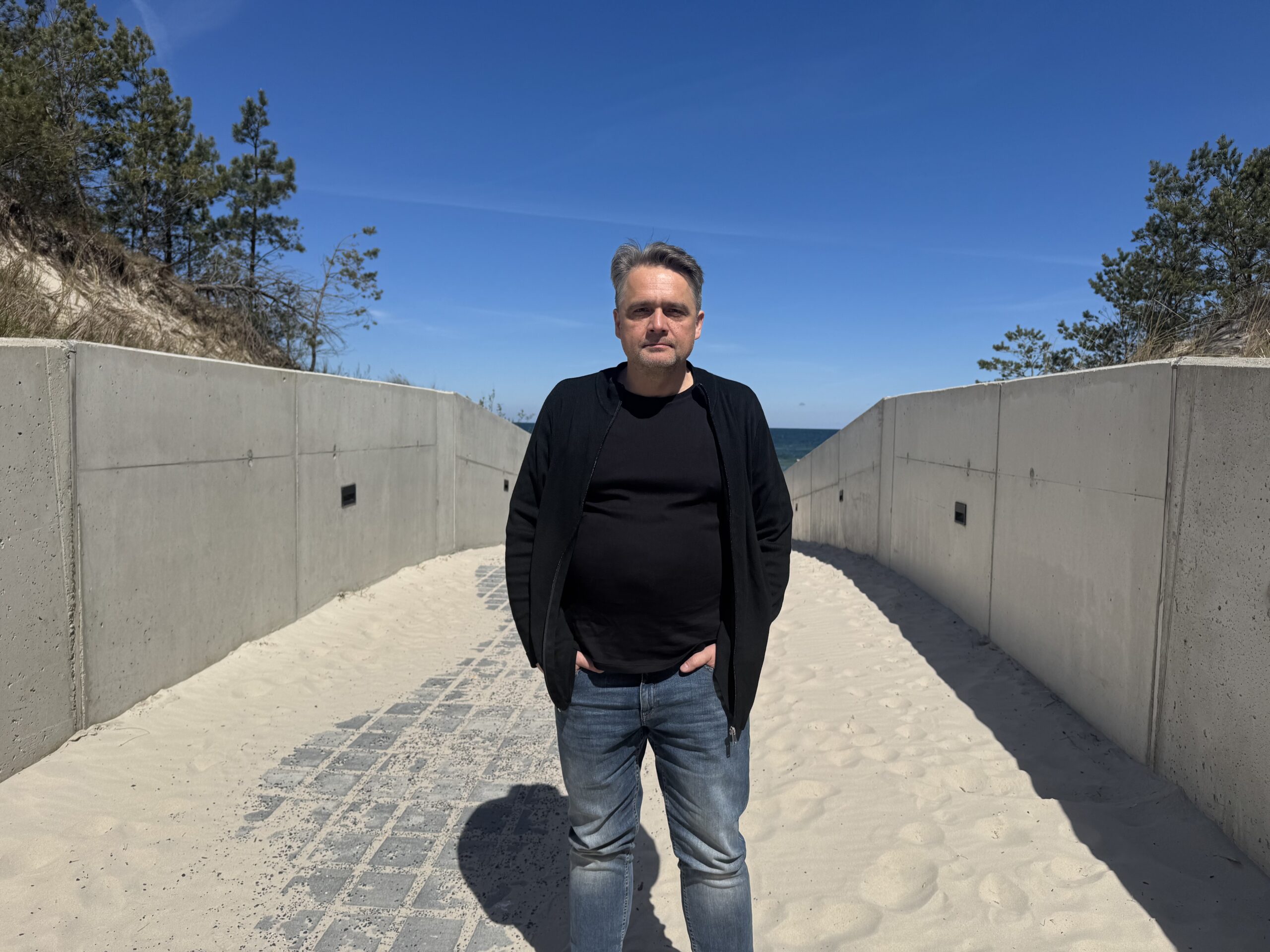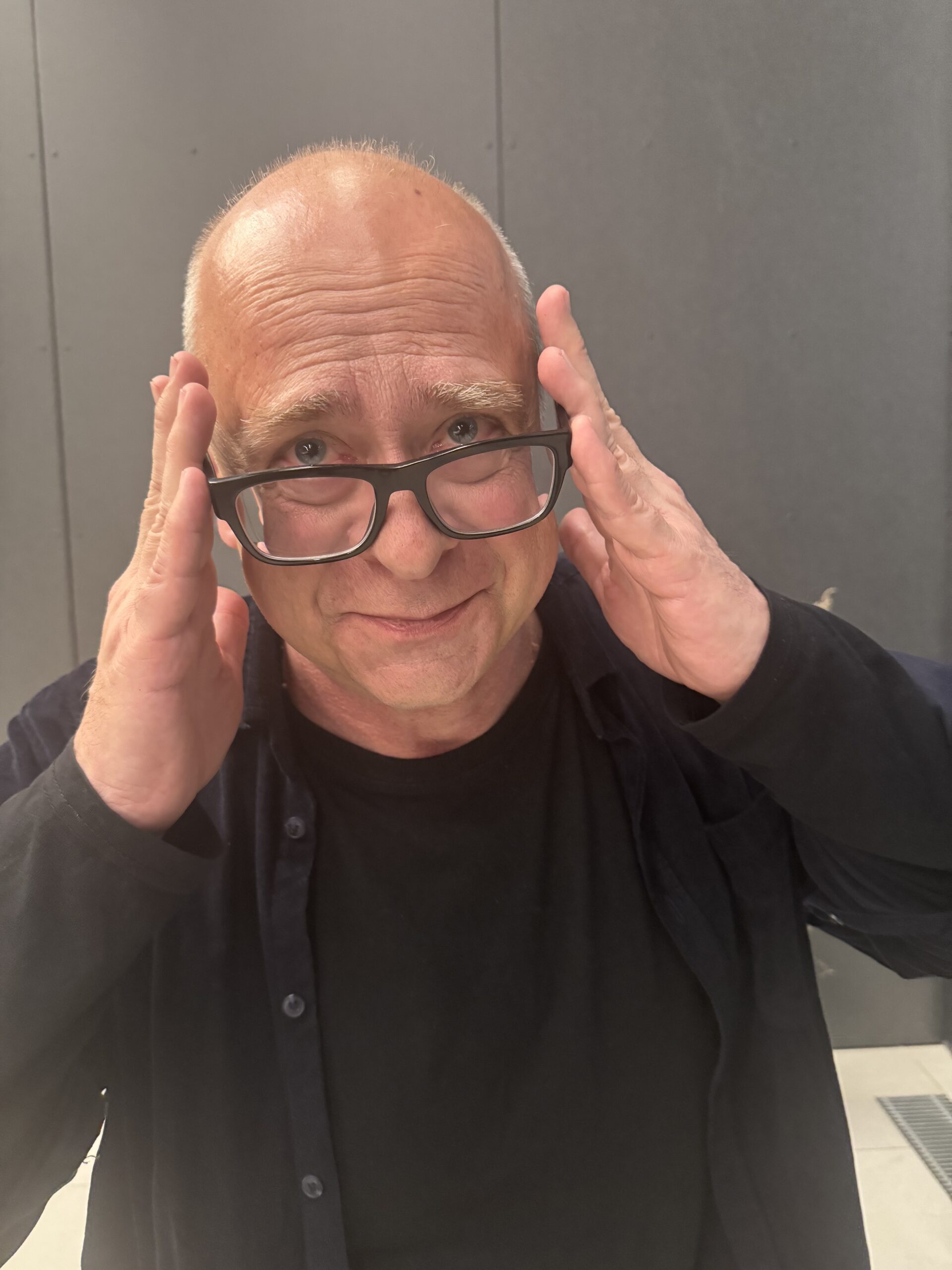More than Mickiewicz and Miłosz: Polish poetry continues to evolve at oldest literary festival

By James Jackson
You may not expect to see a poem about gay sex or a sibling’s gender transition alongside the logo of the Polish ministry for culture.
But that was just one of many offerings for the hundreds of people who travelled in mid-May to Poland’s oldest literature festival, TransPort Literacki, as it celebrated its 30th anniversary in the city of Kołobrzeg on the country’s Baltic coast.
The festival is continuing in its mission of advancing and promoting Polish literature through readings, discussions and workshops while passing the baton between generations of authors and maintaining an international focus, this year including guests from other European literary festivals.
“It’s quite unique in some ways,” says Izara García, international coordinator at the United Kingdom’s Hay Festival. By combining a festival with workshops and publishing events, it is “creating an audience, promoting the work, trying to select the best, and also working with translators. It really nurtures literary creation”.
TransPort Literacki first took place in 1996, under a different name, at a military base in Legnica near the site of a medieval battle, just three years after Russian troops had left following the fall of communism.

Artur Burszta, director of TransPort Literacki and head of Biuro Literackie (image credit: James Jackson)
As Artur Burszta, festival director and head of the Biuro Literackie publishing house that organises the event, explains with a grin, they started with a cheeky slogan: “It used to be Tatars, it used to be Soviets, now it’s time for the poets.”
The festival has changed its name and location many times, often due to local authorities attempting to interfere in the programme. But co-organiser Ola Olszewska says they have a red line: “We won’t publish poor writing, full stop.”
By inviting guests who are at different stages of their literary careers, “it also gives us a great festival audience, which is also composed of people who write”, explains Burszta. “People who used to be participants in workshops are now leading the workshops. We want to pass the baton.”
A struggle for Polish national identityThat mixture of young and old is evident as Aleksandra Kasprzak reads out one of her poems. “Our wedding, like the wedding between Poland and the Baltic Sea, was beautiful,” the poet says, in front of a moody stage decoration accompanied by a musician in the background playing an eerie violin with sound effects.
Sitting on the stage alongside younger poets is Jerzy Jarniewicz, winner in 2022 of Poland’s most prestigious literary prize, the Nike Award, for his anthology Mondo cane.

Jerzy Jarniewicz (image credit: James Jackson)
He is a veteran of the festival, which “started as a movement, a group of friends. We had a sense of being a part of a literary community, but also a generational community”. Jarniewicz says he started writing poetry in the 1980s during martial law in Poland as a protest against the “bankrupt institutional and official culture”.
With Czesław Miłosz winning the Nobel Prize in Literature in 1980, there was an increased interest in the so-called Polish school of poetry that he came to represent alongside figures like Zbigniew Herbert and Wisława Szymborska (who also became a Nobel laureate in 1996).
At the time, dissident writing from across the eastern bloc was becoming an international literary phenomenon, with figures such as Milan Kundera gaining renown, and Kundera’s literary rival Václav Havel even later becoming the last president of Czechoslovakia and the first of the Czech Republic.
But Jarniewicz believes that the interest back then was “politically motivated”, part of an attempt to “exoticise” eastern Europe. His generation rebelled against the idealistic approach, with a “suspicion of great ideas and great ideals, of words which were spelled with capital letters”.
For Jarniewicz and his contemporaries, the Polish school was overly grand. The new poets were more interested in rock music and lyricism than political grandeur and wanted to “get rid of that burden of this Romantic [literary] tradition” which was “anachronistic and irritating”.
“Herbert and Miłosz were figures that in our eyes compromised themselves, because they turned into public spokesmen. They were not only poets, but they wanted to have a say in everything,” Jarniewicz continues.
“They believed that they should be spiritual leaders, they should deal with history, not with everyday life…which Herbert called the ‘black foam of newspapers’,” the poet adds.
For Jarniewicz, that approach is a continuation of the work of Romantic-era poets like Adam Mickiewicz, whose 19th-century national epic, Pan Tadeusz, was written and is set during the period when Poland was partitioned between Prussia, Russia and Austro-Hungary and aimed to express the essence of the occupied Polish nation.
At a time when Poland was partitioned between three foreign empires, Polish artists developed national styles to foster a sense of connection and identity among Poles.
Many elements of their work continue to be closely associated with Polishness today https://t.co/yMNwnCBn5o
— Notes from Poland 🇵🇱 (@notesfrompoland) August 25, 2021
Similarly, Henryk Sienkiewicz’s The Trilogy, a series of three novels also written during the partitions, dramatises events in 17th-century Polish history in an attempt to remind readers of the country’s past and strengthen national identity at a time when it was under assault by Russification and Germanisation.
Breaking through to the global stageWhile there was little direct discussion of Polish national identity on stage at Transport Literacki, there were a variety of political poems, taking on feminist and queer issues, as well as a multilingual reading about the war in Ukraine.
“Poetry is a really special place for dialogue in Poland…we have this huge polarisation, but poetry remains a place for an interchange of ideas,” says author Mira Suchowiejko, who made her literary debut this year with a book of autofiction about her cancer diagnosis while raising a young child.
“Especially in poetry, perhaps more than in prose, you can actually see and capture the change that society is undergoing,” says Burszta. “What Poland has to offer to Europeans and people around the world is very high-quality poetry.”
Yet Polish verse and prose can be devilishly tricky to translate. However, after Olga Tokarczuk won the 2018 Nobel Prize in Literature and thus shone a spotlight on the country’s literature, there were hopes that an uptick in translations would follow.
We spoke with Antonia Lloyd-Jones about translating Nobel Prize winner @tokarczuk_olga and the challenges of bringing Polish culture to the world.
She also gave us her tips on the undiscovered gems of Polish literature awaiting readers outside the country https://t.co/DemvgUM8BV
— Notes from Poland 🇵🇱 (@notesfrompoland) May 10, 2021
Dawid Mobolaji, a 28-year-old Polish literary translator based in London, says that seeing the success of Tokarczuk “was one of the things that put that job on the radar for me”. However, he says he is not sure that her international acclaim has led to “the big boom of Polish literature some people were hoping for”.
“Unfortunately, there’s still this idea that translated literature is a bit more difficult [to read], it’s more ambitious, it’s not as fun. So we’re trying to break through that,” Mobolaji adds.
Others remain positive. “Translators are the natural ambassadors of Polish culture and the Polish language, and they are living abroad so they are able to help us a lot as barometers,” says Zuzanna Kuczera of the Adam Mickiewicz Institute, who is working to promote Poland’s culture as part of the country’s presidency of the EU.
As for the festival, though it has existed for three decades now under a plethora of names and locations, it has not become jaded and will continue in its efforts to advance Polish literature. “We are the oldest in age, but the youngest in spirit,” says Burszta.
Main image credit: Biuro Literackie
notesfrompoland





